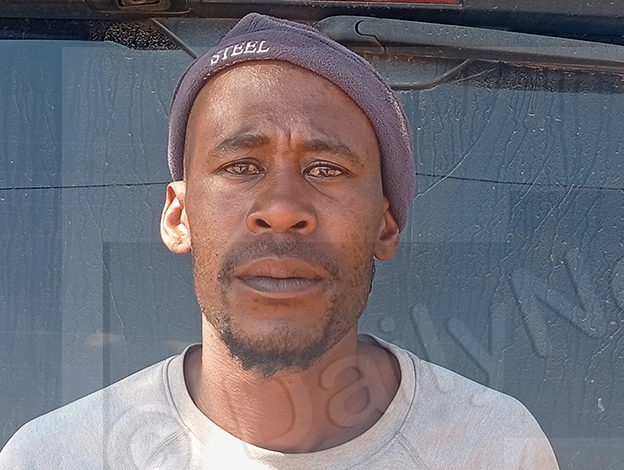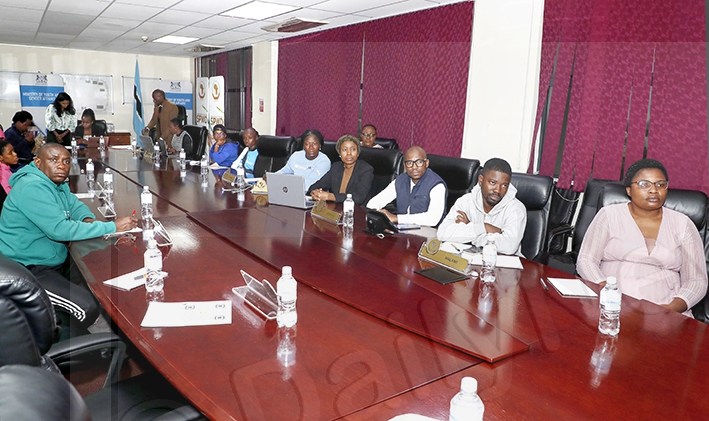Cycling for the TKC event April 15
05 Mar 2024
For 20 years, the Trans Kalahari Corridor (TKC) has been connecting countries and changing lives. From South Africa to Botswana and Namibia, the corridor has opened doors and created opportunities for people from all walks of life. But this has not been an easy journey.
It has faced many challenges in realising its goal. However, Member States have committed themselves to ensuring development is enhanced along the corridor to provide a trade route in line with the continental free trade area.
To celebrate the TKC 20 years anniversary and achievements, management committee (TKCMC) organised a number of activities, among them a cycling event dubbed, Cycling for the TKC. The 20th anniversary of the TKC was celebrated last year November 3, in Windhoek, Namibia, with various events held to mark the occasion.
The cycling event, which was originally planned for the anniversary, had to be postponed due to logistical issues and it is now scheduled for April 15 starting from Pretoria, via Botswana to Walvis Bay, Namibia.
The cycling event, which will cover 1 900km in 15 days, will highlight the role of the TKC in connecting people and places across the three countries of South Africa, Botswana and Namibia.
Marketing and Communications Executive at the TKC Secretariat in Windhoek, Ms Odirile Hunda said in an interview that the event would keep the celebrations going and to engage with local communities.
“The anniversary celebrations will end on November 3, marking one year since the initial anniversary celebrations began,” said Ms Hunda.
She explained that the cyclists, 10 from each TKC member state, would experience firsthand the opportunities presented by the TKC, as well as the natural beauty and cultural richness of the region.
Ms Hunda further indicated that the cycling event was also aimed at raising funds for local development projects. According to Ms Hunda, the cycling event will take participants through settlements in all the three countries, providing a unique opportunity for interaction with local communities.
She explained that the main objective of the cycling is to raise awareness and promote the corridor’s achievements. The other objectives are to marketing the TKC, hype the 20th anniversary celebration as well as to promote spatial development initiatives on the TKC.
“The other objective is to create an increased awareness and usage of the TKC and to promote road safety on the TKC in line with the UN Second Decade of Action for road safety as well as the African Union Road Safety Charter,” she noted.
She stated that the other aim was to obtain member states’ recommitment to economic development of towns and villages along the TKC through signing of a pledge whilst at the same time advocating for infrastructure developments on the TKC that caters for non-motorised transport such as cycling and walking in order to curb road accidents that involve vehicles, cyclists and pedestrians.
The last objective, she said, is to promote productivity by encouraging a healthy lifestyle through cycling. “We expect to see enthusiastic support for the cyclists from the local people along the route,” she said.
She explained that the cycling event was not only about promoting the TKC, but also about celebrating the cultures and communities of this region.
She said the TKC’s long-term vision was to create a future where every community along the route would have experienced significant development.
“In 50 years, it is anticipated that the towns and villages that host the route will have now grown into thriving cities and bustling towns,” she said, adding “this is the economic opportunities and development that the TKC wants to bring about.”
Ms Hunda said the TKC was a catalyst for growth and progress, with the potential to transform the lives of generations to come.
She explained that one of the challenges facing the TKC was lack of secure truck stops, which put drivers and cargo at risk. “Some incidences at Sekoma saw fuel being stolen from trucks, highlighting the dangers that drivers face,” she said.
She explained that inadequate security at truck stops not only put drivers at risk, but could also result in dangerous delays and other risks to their safety.
She added that truck stops were needed to ensure the safety and wellbeing of drivers and the smooth functioning of the TKC. She said as part of its mission, TKC was committed to supporting the development of infrastructure that would benefit communities along the route.
“This includes building truck stops that provide safe and secure spaces for drivers to rest and refuel,” said Ms Hunda, adding that the TKC is creating a brighter future for the region as it supports the improvement of healthcare facilities along its route ensuring that communities have access to these essential services.
In order to make the TKC cycling event a success, Ms Hunda called for support of individuals, businesses, and other stakeholders.
She explained that the route offers a unique opportunity to promote growth and development in the region, and she hopes that the event will bring the much needed attention and investment to the communities it passes through.
“The potential benefits of this event are vast, and with the right support, it can truly transform the region the better in terms of regional trade and integration. Meanwhile, Kgosi Basadi Seipone of Kang, which is along the corridor, expressed support for the cycling event, saying her village had benefited from the increased commerce brought by the corridor as well as the improved access to markets and services, including healthcare and education.
“New job opportunities have been created particularly in the tourism and services industries,” she added. She explained that there had also been an increased in investment and infrastructure development as well as improved access to information and technology.
“In addition, stronger cultural connections have been created,” said Kgosi Seipone.
However, the traditional leader said while the TKC had brought new opportunities, it had also created new problems for the people living along its route.
“Increased traffic has led to environmental degradation, social disruption, and many people have been displaced from their homes to make way for new roads and developments,” she added. ENDS
Source : BOPA
Author : Thamani Shabani
Location : FRANCISTOWN
Event : Anniversary
Date : 05 Mar 2024








